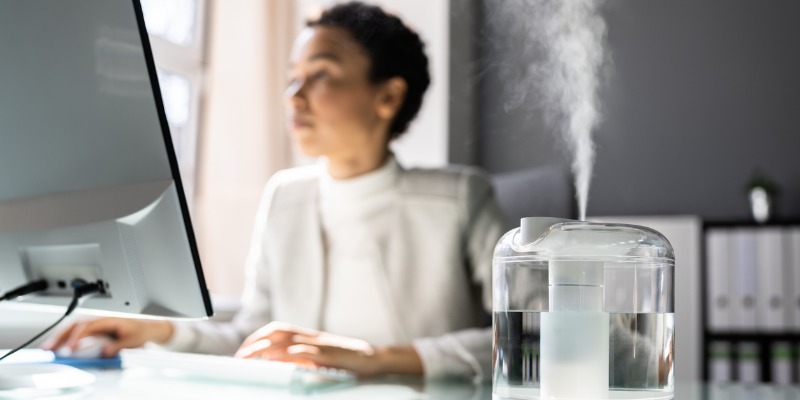
Humidifiers can help you with breathing problems and other respiratory issues. To be clear, we’re not doctors. Humidifiers don’t usually qualify as lung treatments and when they do, it’s your doctor who should be telling you about them. However, humidifiers can help comfort you when you have lung and airway issues, and you don’t need a prescription to make your home a bit more comfortable. On the other hand, because humidity does have a powerful effect on those with breathing issues, you should ask your doctor whether a humidifier is right for you.
How Humidifiers Help
Low humidity levels can cause a variety of breathing and other dryness issues, including:
- Irritated nose and throat
- Dry airways
- Itchy eyes
- Dry skin
- Nose bleeds
Installing a humidifier and getting your home’s humidity levels up to normal (between 30% and 50%) will relieve these symptoms of dry air.
In addition, according to the Mayo Clinic, increasing your humidity levels to normal can help soothe those with colds, allergies, asthma, and respiratory conditions. Healthline states the low humidity levels can make it harder for those with respiratory conditions to breathe.
Can a Humidifier Help with Asthma?
Technically, there is no medical consensus on whether humidifiers can help your asthma. However, when humidity levels are very low, using a humidifier to boost it back up to normal may be helpful.
Overly damp air can certainly make asthma and other respiratory distress worse. Using a dehumidifier in the summer, but only if you know your humidity levels are higher than 50% can help people with all kinds of breathing and respiratory issues.
Are you looking to speak with a HVAC expert? Contact the team at Noll ClimateCare today!
Be Cautious with Humidity Levels
While ideal humidity levels can help you handle the symptoms of some respiratory problems, if you make the humidity too high, you can end up hurting yourself. High humidity can trigger asthma and other respiratory issues. Measure your humidity regularly and ensure it is below 50%.
In addition, be sure that you regularly change your humidifier filter and keep it clean from mold growth. Dirty filters and mold growth can both undermine air quality and that is exactly what you’re trying to improve.
There are also various types of humidifiers, some of which may be better suited to your needs. For example, it may be best for you to use a whole-home humidifier to restore humidity levels to the entire house, rather than to simply run a small humidifier next to you and potentially have fluctuating humidity levels in the house. Other people can also benefit from ideal humidity levels.
Talk to Your Doctor
Many doctors understand that humidity levels can have powerful effects on respiratory conditions. Check in with them to find out what they recommend for your specific circumstances.
Have questions about how to achieve ideal humidity conditions in your home, especially in different seasons? Reach out Noll ClimateCare for expert advice.






